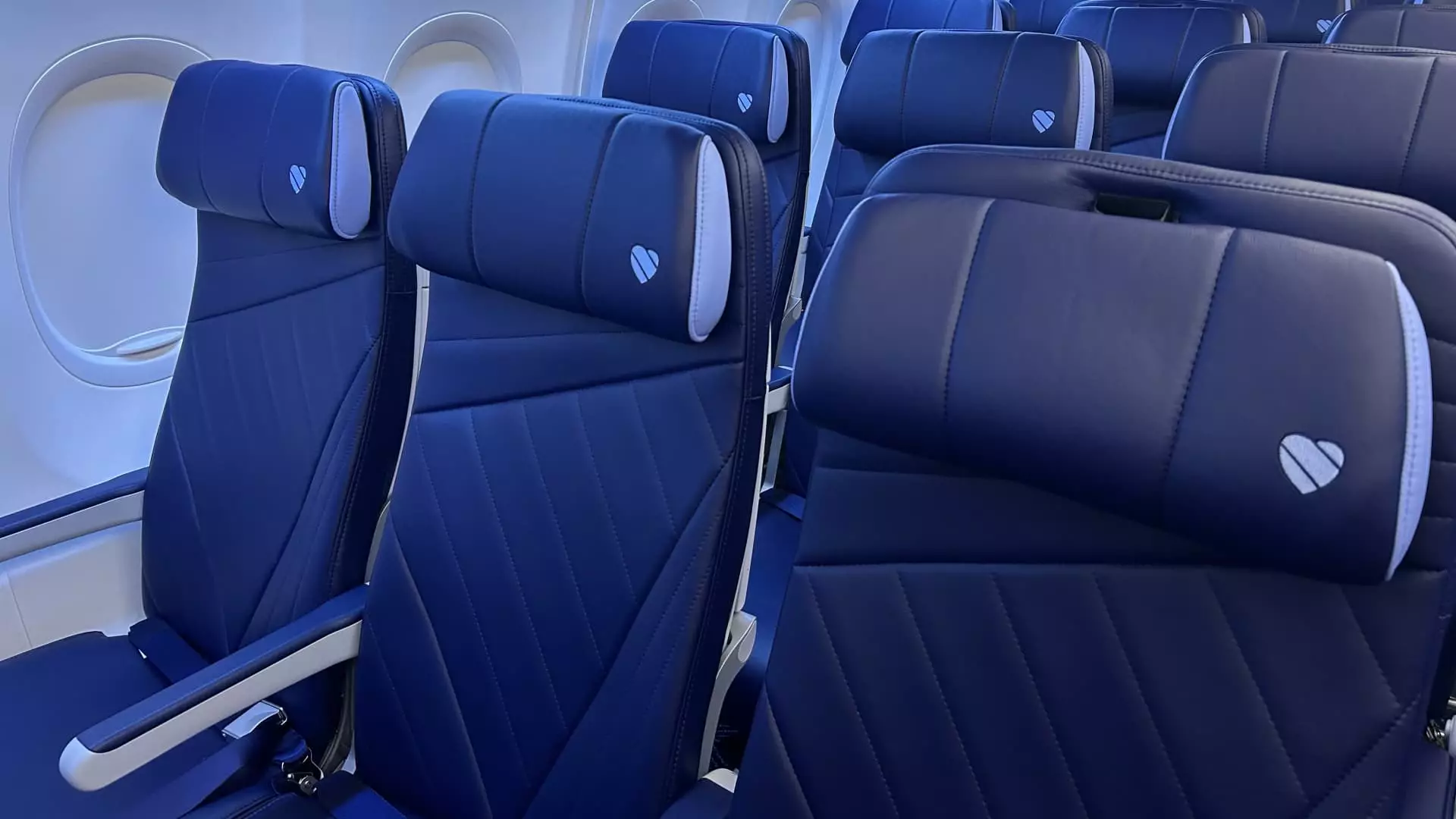Southwest Airlines has long stood apart in the aviation industry by embodying a customer-friendly ethos—no assigned seating, free checked bags, and an egalitarian boarding process that celebrated the idea of equal treatment regardless of fare class. Yet, as the airline embraces the more profitable world of seat assignments and ancillary fees, it reveals a troubling willingness to abandon its foundational principles in favor of short-term revenue boosts. This transition is not just a business adjustment; it signals a deeper shift away from values that once prioritized travelers’ experience over squeezing every penny.
The move to introduce assigned seats, which began with the sale of spot-specific reservations for flights starting in late January, marks a stark departure from Southwest’s historic stance on spontaneity and fairness. No longer will passengers experience the thrill and chaos of open seating; now, they must pay hefty premiums for the privilege of choosing a preferred window or aisle. This is a calculated attempt to monetize what was once a simple, inclusive aspect of flying—one that many travelers valued as part of their loyalty to the airline.
The pricing structure is revealing in its effort to segment customers: a basic “Choice” ticket might cost under $700 for a roundtrip but add hundreds more if you desire a specific seat—sometimes reaching nearly $50—more than a small supplement for a meal at a decent restaurant. For families or those traveling on a tight budget, these hidden costs quickly accumulate, turning what once was a straightforward expense into a complicated, fee-laden ordeal. The expansion of these charges risks eroding customer trust, especially among those who cherished Southwest’s reputation for transparency and simplicity.
Economic Strategy or Erosion of Brand Integrity?
One must question whether this new revenue-driven approach aligns with Southwest’s core identity or if it’s a strategic gamble designed to appease Wall Street’s relentless pressure on profit margins. The airline industry’s shift toward ancillary fees—charging for checked bags, seat selections, and other amenities—has been significant and profitable for carriers like United and Delta. Yet, Southwest’s embrace of these fees comes at a potential cost: alienating the very loyal customer base that once championed its no-frills, egalitarian ethos.
Activist investors, such as Elliott Management, have clearly played a role in encouraging the move away from Southwest’s original business model, favoring revenue maximization over customer loyalty. The introduction of seat fees and the abandonment of free early seat selection underline a strategic pivot that treats passengers more like commodities than consumers. Whether this will ultimately benefit the airline remains to be seen; early indicators suggest it might alienate core customers, especially those who valued flexibility and simplicity.
Furthermore, Southwest’s decision to implement bag fees—initially modest but steadily increasing—further underscores this shift. While comparable to industry standards, these additional fees add frustration, especially when coupled with the new seat assignment charges. The combination of extra charges for bags and preferred seating transforms an airline once admired for its straightforward pricing into a complex, fee-laden labyrinth that could discourage loyal travelers from returning regularly.
The Moral Dilemma: Profit Versus Customer Trust
At the heart of this transformation lies a fundamental moral question: Should an airline dedicated to serving the general public prioritize short-term profit over longstanding commitments to fairness and customer care? Southwest’s move toward paid seat assignments, premium-priced upgrades, and tiered seating options suggests a prioritization of revenue over the egalitarian spirit that once made the airline a standout in the industry.
For many passengers, this evolution feels like a betrayal. It subtly shifts the airline’s identity from a customer-first carrier to a profit-oriented enterprise. Once reserved for budget-conscious flyers seeking simple, reliable service, Southwest now increasingly resembles its competitors—cutthroat, fee-driven, and impersonal. This risks not just customer dissatisfaction but a long-term erosion of the goodwill that Southwest so carefully cultivated over decades.
Interestingly, Southwest’s loyal frequent flyers and credit card holders will receive some preferential treatment—free access to preferred seats, free checked bags, early booking privileges—but only if they are part of specific programs and statuses. This creates a two-tiered experience that contrasts sharply with its historic egalitarian approach. The message: loyalty now comes with strings attached, and the airline’s original promise of accessible, fare-friendly travel feels increasingly like a relic of a bygone era.
The Broader Implication: A Cautionary Tale for the Industry
Southwest’s transformation serves as a cautionary tale about the delicate balance between profitability and brand integrity. While revenue diversification through ancillary fees is a logical business trend, it should not undermine the core values that define a company’s identity. Airlines like Southwest need to recognize that their true competitive advantage lies in fostering trust and loyalty—not just maximizing short-term revenue.
As airline passengers become more discerning—and often more vocal—about their expectations of transparency and fairness, the industry faces a critical test. Will carriers sacrifice their moral standing for the sake of margins, or will they find innovative ways to enhance revenue without sacrificing their reputation? Southwest’s recent decisions suggest that, for some, the pursuit of profits has overtaken that responsibility.
In a climate where flying is increasingly seen not just as a way to get from point A to B but as an experience—entwined with perceptions of fairness, value, and respect—this shift toward fee-centric models could prove to be a strategic mistake. For Southwest, the challenge is to reconcile its newfound revenue strategies with the values that once made it a beloved leader in affordable air travel. If it fails, the airline risks not just losing customers but also tarnishing the legacy it took decades to build.

